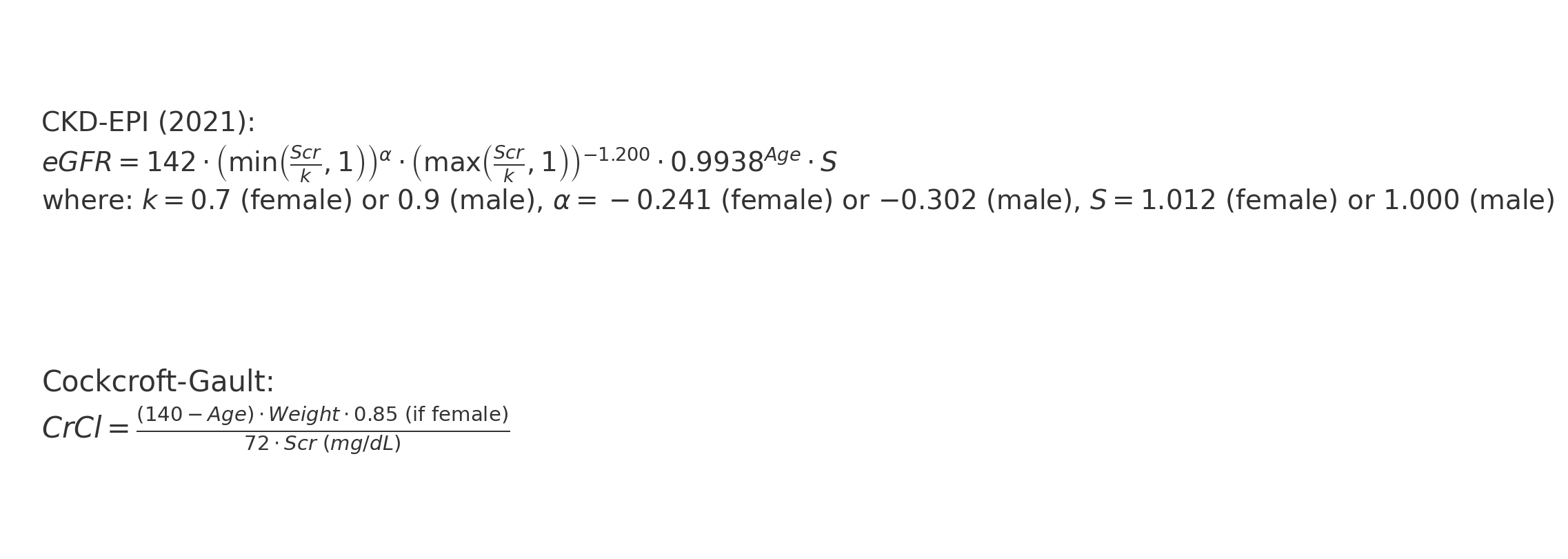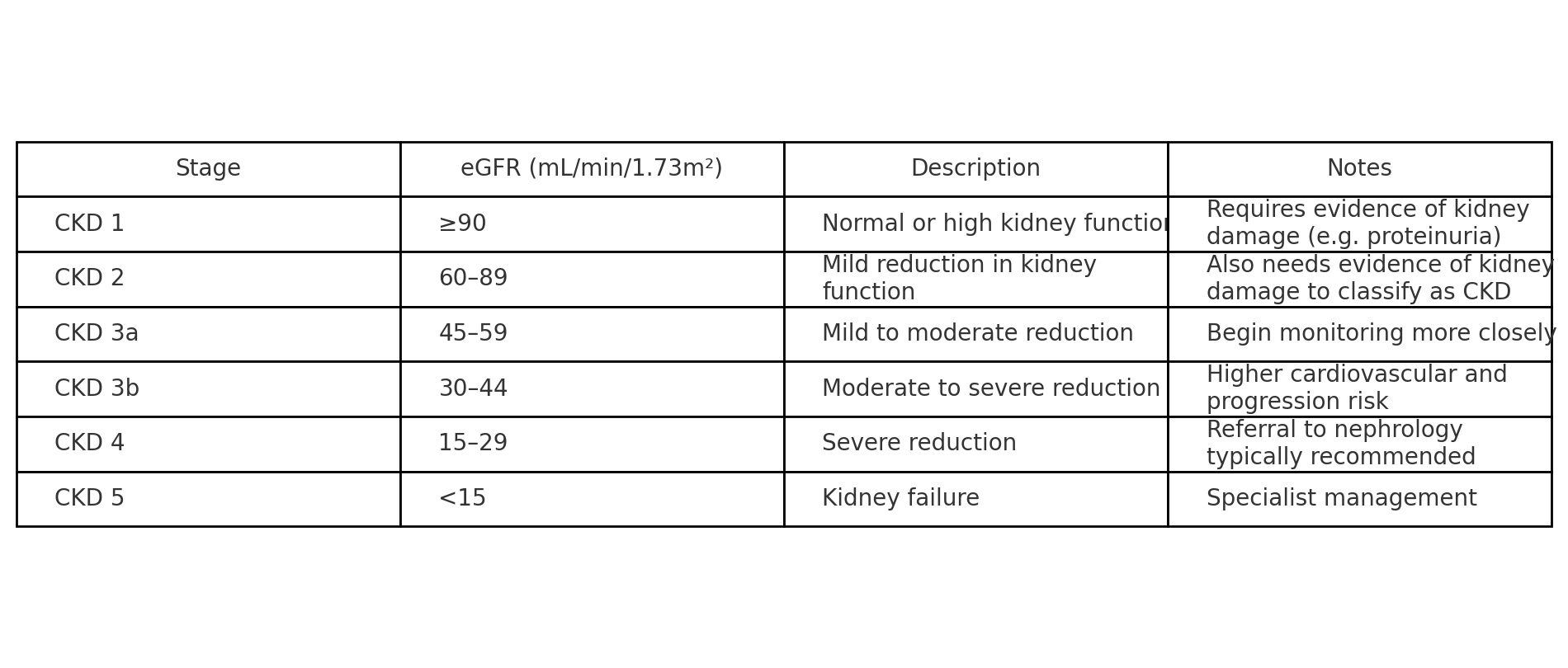Kidney Function Calculator

eGFR
The estimated glomerular filtration rate (eGFR) is the preferred method for describing kidney function in most clinical situations.<
It is calculated using the CKD-EPI equation, which takes into account a person’s age, sex, and serum creatinine level. This estimate reflects the filtration capacity of the kidneys and is used for diagnosing, staging, and monitoring chronic kidney disease (CKD).
eGFR is standardised to a body surface area of 1.73 m², which allows for comparison across individuals.
Creatinine Clearance
Creatinine Clearance (CrCl) provides an estimate of the actual rate at which the kidneys are clearing creatinine from the blood.
It is calculated using the Cockcroft-Gualt equation. Unlike eGFR, CrCl incorporates body weight, making it relevant when accurate weight-based dosing is needed- such as with aminoglycoside antibiotics, anticoagulants, and chemotherapy drugs.
Formulas

CKD
Chronic Kidney Disease (CKD) is a common, progressive condition where the kidneys gradually lose function over time. It is usually asymptomatic in its early stages and is often detected through routine blood tests showing a reduced eGFR or evidence of kidney damage, such as proteinuria.
CKD is staged from 1 to 5, with stage 3 or worse (eGFR <60) indicating moderate to severe impairment.
CKD is strongly associated with cardiovascular risk, diabetes, and hypertension. Early detection allows interventions like blood pressure control, glycaemic management, and ACE inhibitors which can slow progression. Monitoring eGFR over time helps guide treatment decisions, detect complications, and plan specialist referral when needed.

More info
National Kidney Foundation. eGFR Calculators and Equation Overview
NICE. Chronic Kidney Disease: Assessment and Management (NG203)
KDIGO. Clinical Practice Guideline for the Evaluation and Management of Chronic Kidney Disease